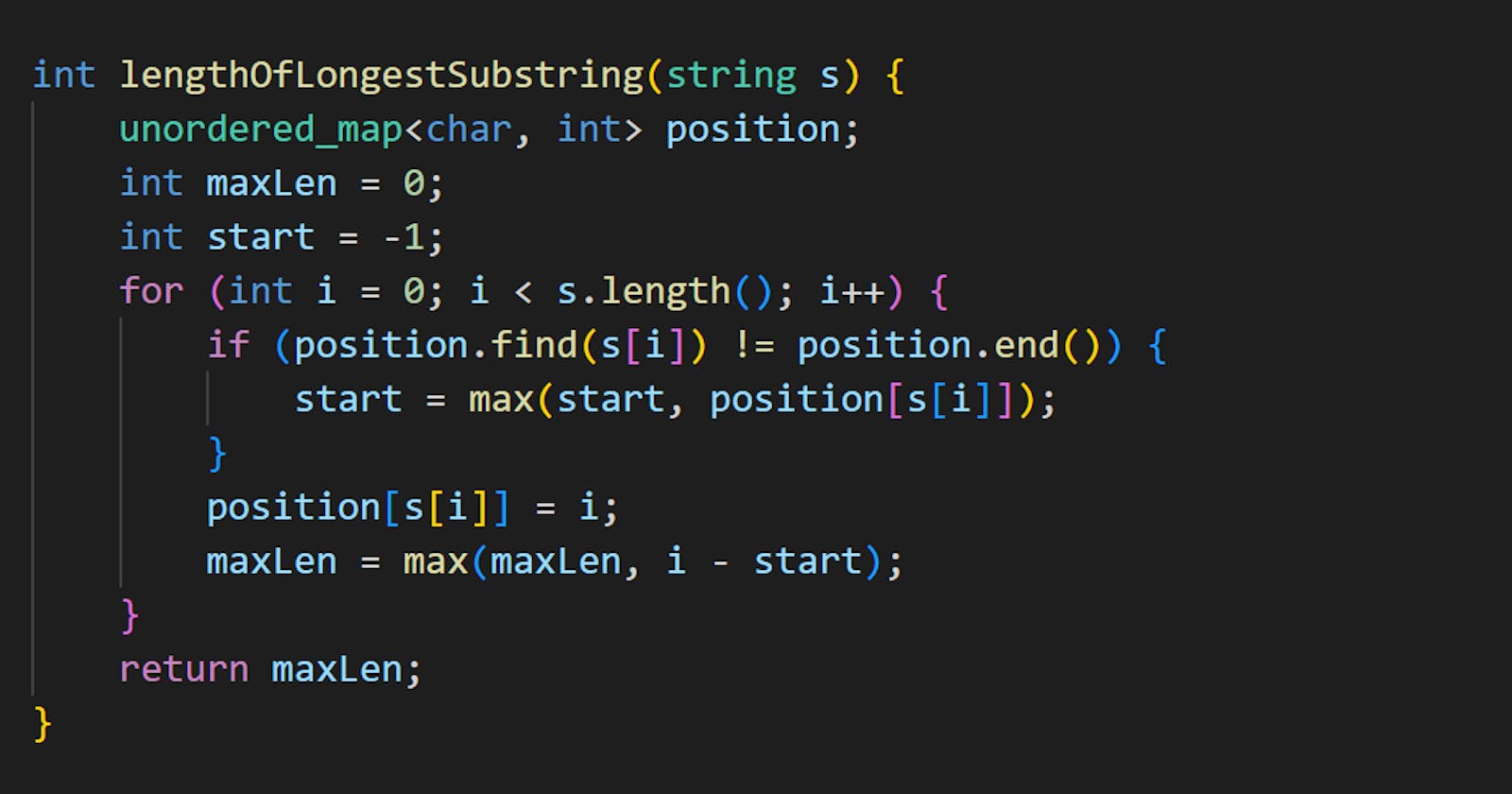How to solve Leetcode 3. Longest Substring Without Repeating Characters
An example of using unordered_map in C++
Problem statement
Given a string s, find the length of the longest substring without repeating characters.
Example 1
Input: s = "abcabcbb"
Output: 3
Explanation: The answer is "abc", with a length of 3.
Example 2
Input: s = "bbbbb"
Output: 1
Explanation: The answer is "b", with the length of 1.
Example 3
Input: s = "pwwkew"
Output: 3
Explanation: The answer is "wke", with a length of 3.
Notice that the answer must be a substring, "pwke" is a subsequence and not a substring.
Constraints
0 <= s.length <= 5 * 10^4.sconsists of English letters, digits, symbols and spaces.
Solution: Store the position of the visited characters
Whenever you meet a visited character s[i] == s[j] for some 0 <= i < j < s.length, the substring "s[i]...s[j - 1]" might be valid, i.e. it consist of only nonrepeating characters.
But in case you meet another visited character s[x] == s[y] where x < i < j < y, the substring "s[x]...s[y - 1]" is not valid because it consists of repeated character s[i] == s[j].
That shows the substring "s[i]...s[j - 1]" is not always a valid one. You might need to find the right starting position start >= i for the valid substring "s[start]...s[j - 1]".
Example 4
For the string s = "babba":
When you visit the second letter
'b', the substring"ba"is a valid one.When you visit the third letter
'b', the substring of interest should be started by the second letter'b'. It gives you the substring"b".When you visit the second letter
'a', the substring"abb"is not a valid one since'b'is repeated. To ensure no repetition, the starting position for this substring should be the latter'b', which leads to the valid substring"b".The final longest valid substring is
"ba"with length 2.
Example 4 shows the starting position start for the substring of interest "s[i]...s[j - 1]" should be:
this_start = max(previous_start, i).
Code
#include <iostream>
#include <unordered_map>
using namespace std;
int lengthOfLongestSubstring(string s) {
unordered_map<char, int> position;
int maxLen = 0;
int start = -1;
for (int i = 0; i < s.length(); i++) {
if (position.find(s[i]) != position.end()) {
start = max(start, position[s[i]]);
}
position[s[i]] = i;
maxLen = max(maxLen, i - start);
}
return maxLen;
}
int main() {
cout << lengthOfLongestSubstring("abcabcbb") << endl;
cout << lengthOfLongestSubstring("bbbbb") << endl;
cout << lengthOfLongestSubstring("pwwkew") << endl;
}
Output:
3
1
3
Complexity
Runtime:
O(N), whereN = s.length.Extra space:
O(N).
